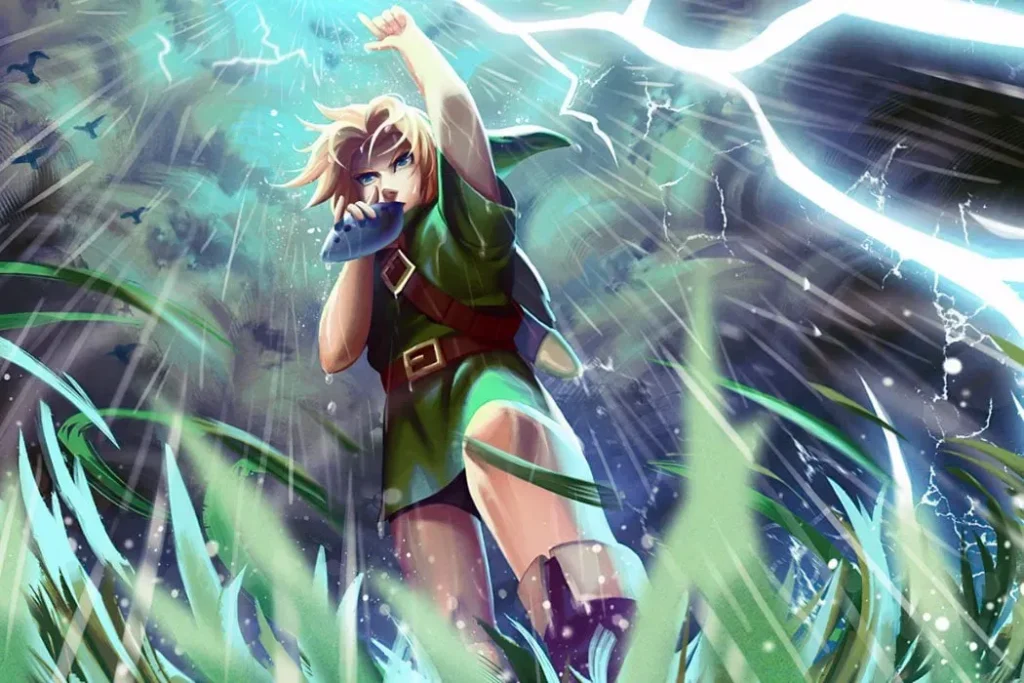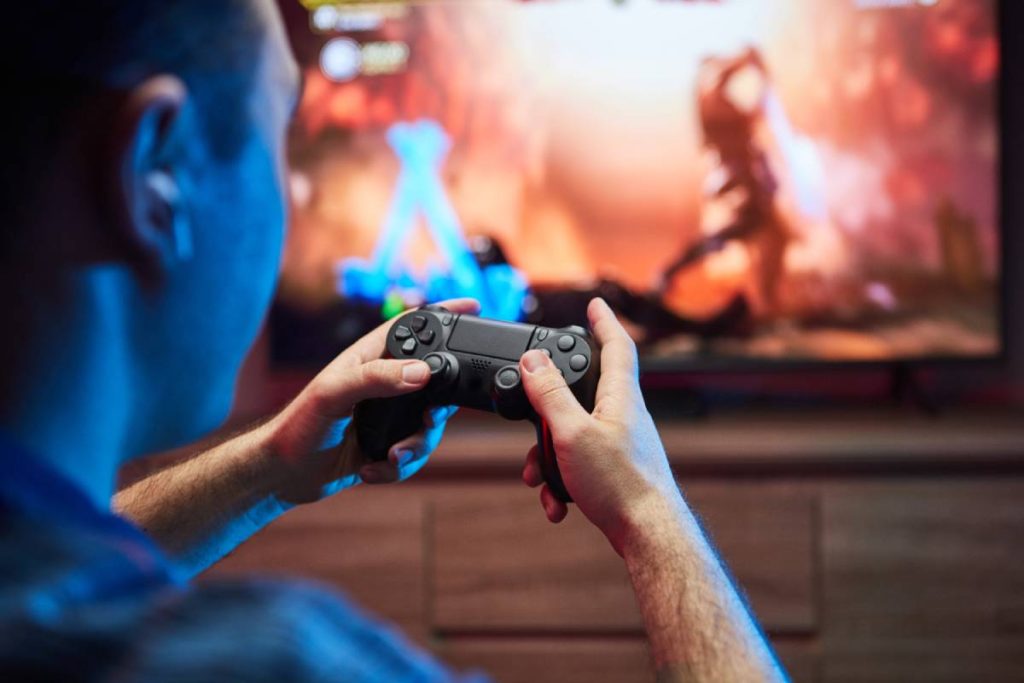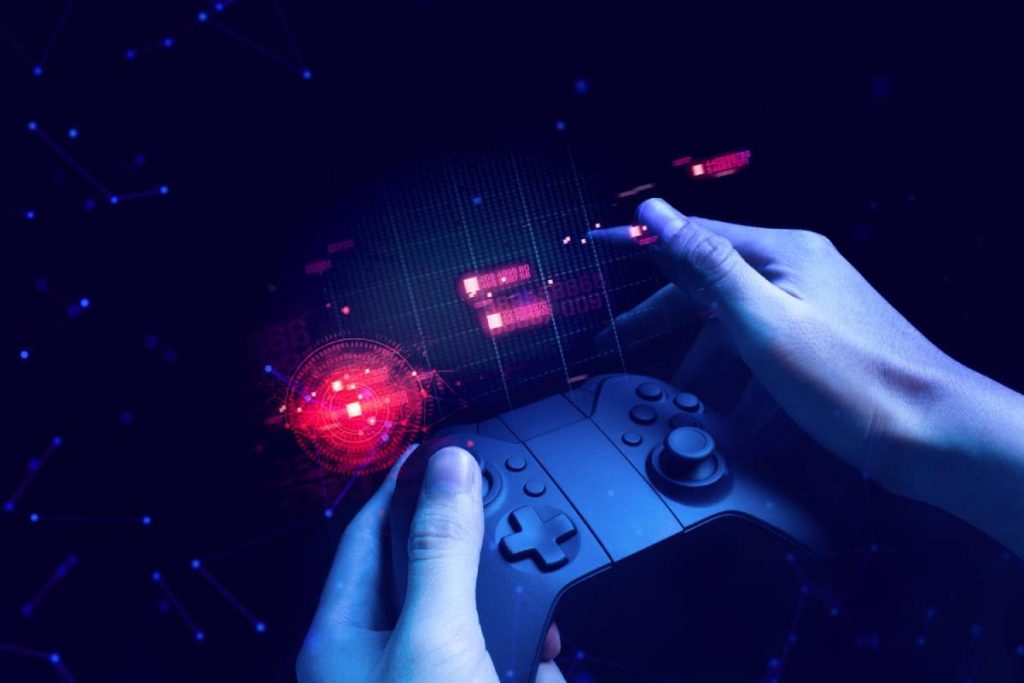In a surprising turn of events, Nintendo has taken legal action by filing a subpoena against Discord, seeking to uncover the identity of the leaker behind the ‘teraleak’ that exposed sensitive Pokémon information in October 2024. This ‘Pokémon leak’ has sparked significant discussion within gaming communities, raising concerns about data privacy and intellectual property. Nintendo’s request, which was submitted to the San Francisco district court, specifically targets the user known as GameFreakOUT, who allegedly disseminated confidential materials on a platform notorious for its vibrant gaming discussions. The legal filing emphasizes the company’s commitment to protecting its intellectual property against unauthorized leaks. As the situation unfolds, the gaming world watches closely, questioning the implications of this Discord subpoena and what it means for the future of video game security and transparency.
In a bid to protect its interests, Nintendo has initiated proceedings to compel Discord to disclose personal information regarding a user implicated in the recent Pokémon ‘teraleak’. This legal maneuver highlights the ongoing struggle within the gaming industry to safeguard proprietary information, particularly when leaks threaten to undermine the hard work of developers and creatives. The situation has cast a spotlight on the role of social platforms in managing the distribution of sensitive content. By targeting the Discord platform, Nintendo is not only aiming to hold the alleged leaker accountable but also asserting its rights against unauthorized distribution of material that could have significant repercussions for franchises like Pokémon. As discussions about the Nintendo legal action progress, various stakeholders are left to ponder the balance between community engagement and protecting intellectual rights.
Nintendo Subpoenaing Discord for Pokémon Leaker Identity
In a notable turn of events, Nintendo has officially filed a subpoena request to Discord, aiming to uncover the identity of the leaker involved in the infamous October 2024 Pokémon ‘teraleak’. This legal maneuver is rooted in a breach of confidential information that has raised serious concerns about the security protocols surrounding game development. The legal filing emphasizes the importance of protecting intellectual property in the gaming industry, especially for beloved franchises like Pokémon.
The gaming community is abuzz with discussions revolving around the implications of Nintendo’s legal action, particularly how it might impact user privacy on platforms like Discord. By targeting a specific user, GameFreakOUT, Nintendo hopes to deter potential leaks in the future. Such actions underscore the significance of maintaining strict control over sensitive information and may lead to a broader discussion regarding the responsibilities of online platforms in managing information leaks.
Understanding the Teraleak Incident
The Pokémon ‘teraleak’ refers to a massive leak of confidential materials related to the Pokémon franchise that emerged in October 2024, affecting numerous assets and information about upcoming games. The breach shocked fans and industry insiders alike when it was revealed that sensitive data included source code and artwork for iconic games like Pokémon HeartGold and SoulSilver. This event raised alarms over cybersecurity practices within the gaming industry, particularly among major developers like Game Freak.
Many in the gaming community have since speculated on how this leak could influence the future of Pokémon titles and the broader market. Questions surrounding the authenticity of leaked information have also become prevalent, particularly as speculations about potential new game features circulate. The teraleak incident serves as a critical reminder of the vulnerabilities that exist in the digital age and the importance of stringent protective measures against unauthorized disclosures.
The ramifications of the teraleak, not only for Nintendo but also for the broader narrative around game leaks, cannot be understated. Each leak not only damages a company’s brand integrity but also affects the player community’s trust in official channels for information.
As discussions continue, the teraleak will likely influence how developers approach pre-release game information and their strategies for combating leaks.
The Legal Landscape of Video Game Leaks
The legal ramifications of video game leaks are multifaceted and significant, especially for major franchises like Pokémon. Nintendo’s legal action against Discord highlights the delicate balance between freedom of information and the protection of intellectual property. As the gaming industry grows, so does the need for stricter legal frameworks to deter leaks that can harm both developers and consumers alike. The Digital Millennium Copyright Act will play a crucial role as more companies seek to protect their work through legal action.
As Nintendo battles to maintain its image and protect its rights, other gaming companies will likely observe the outcome of this case closely. The legal landscape regarding leaks is evolving and could potentially set precedents for future cases, affecting how companies manage leaks and respond to breaches. Developers may adopt more proactive measures in their confidentiality agreements with employees and third-party contractors to mitigate risks associated with unauthorized disclosures.
Implications for Discord Users and Privacy
As Nintendo’s legal request targets a specific user’s identity on Discord, it raises significant questions about user privacy on social media and gaming platforms. Many users express concern that their anonymity could be compromised in similar situations, particularly when legal actions are involved. The potential for a company to subpoena platforms for user information may deter users from freely discussing or sharing information, leading to a chilling effect on communication within online communities.
This incident has sparked an ongoing debate about the responsibilities of online platforms like Discord in protecting their users while also complying with legal requests from corporations. Striking the right balance between legal compliance and user privacy can be challenging, and platforms may need to reevaluate their policies to ensure they prioritize user security while cooperating with legal processes.
Pokémon Leaks and Community Reactions
The Pokémon community has shown varied reactions in response to the news of the subpoena request and the teraleak incident. Many fans express sympathy for the anonymity of leakers, believing that the excitement and anticipation surrounding new information about Pokémon games should remain vibrant and community-driven. Others are concerned about the consequences of such leaks, particularly the potential impact on the gaming industry’s creative processes.
As discussions unfold, fans are also utilizing Discord and other platforms to share speculations and express their views on how leaks impact their gaming experiences. This shared discourse helps to fortify community bonds, yet it also poses challenges for Nintendo and its efforts to protect their intellectual property. The ongoing legal actions highlight the tension between the enthusiasm of the community and the protective instincts of the company.
Preserving Nintendo’s Intellectual Property Rights
Nintendo’s ongoing efforts to protect its intellectual property through legal action is crucial in the fight against unauthorized leaks. The game industry thrives on creative innovations, and preserving these rights ensures that developers can continue to create unique content without the threat of widespread piracy or leak culture. The case against Discord serves as an essential step in reinforcing intellectual property rights in an era increasingly characterized by digital leaks.
As this legal battle unfolds, it may prompt other game developers to reconsider their strategies for safeguarding sensitive information. Companies could invest more in cybersecurity measures or strengthen their employee training and compliance programs to mitigate risks associated with information leakage. With the stakes at hand, the preservation of intellectual property remains a pressing concern.
The Future of Game Development and Leaks
As game development continues to evolve, the way leaks are managed and handled will play a significant role in shaping future releases. Nintendo’s legal actions highlight the industry’s need for comprehensive strategies to prevent unauthorized disclosures of sensitive materials. Developers must remain vigilant in an environment where information can be disseminated almost instantaneously, thanks to social media and online platforms.
Looking ahead, we may see an increased focus on proactive leak prevention strategies, including secure information-sharing technologies and improved internal communications protocols. Developers may also engage more actively with their communities to manage expectations and prevent misinformation from circulating, thus maintaining the excitement for upcoming releases without compromising their sensitive information.
Conclusion on Nintendo vs. Discord Case
In conclusion, Nintendo’s decision to subpoena Discord for the identity of a Pokémon leaker signals a significant moment in the intersection between gaming, legality, and community engagement. This case may redefine how companies act against leaks while balancing the need for user privacy and community involvement. As responses and discussions evolve, we may witness shifts in the landscape of how leaks are perceived within the gaming community.
Ultimately, the outcomes of the Nintendo legal case will have long-reaching implications for both developers and players alike. By prioritizing the protection of intellectual property while addressing community concerns, a better understanding of the dynamics surrounding leaks may emerge, positively shaping the future of game development.
Frequently Asked Questions
Why did Nintendo file a subpoena against Discord regarding the Pokémon leak?
Nintendo filed a subpoena against Discord to uncover the identity of the user ‘GameFreakOUT’, who allegedly leaked confidential materials about the Pokémon franchise in the October 2024 ‘teraleak’. This legal action aims to protect Nintendo’s intellectual property rights, as the leak included sensitive information about upcoming games and unreleased content.
What was revealed in the Pokémon teraleak that led to Nintendo’s legal action?
The October 2024 Pokémon ‘teraleak’ disclosed a variety of confidential materials, including source code for Pokémon games like HeartGold and SoulSilver, and details about future titles. This breach of sensitive information prompted Nintendo to seek legal recourse through a subpoena to Discord.
How does the Digital Millennium Copyright Act (DMCA) relate to Nintendo’s Discord subpoena?
Nintendo’s subpoena request to Discord is filed under the Digital Millennium Copyright Act (DMCA), which allows copyright holders like Nintendo to take legal action to protect their exclusive rights. The act provides a legal framework for Nintendo to obtain the identity of the leaker and address the infringement resulting from the Pokémon teraleak.
What information is Nintendo seeking from Discord about the user GameFreakOUT?
Nintendo seeks to obtain the identity of the Discord user GameFreakOUT, including personal details such as their name, address, telephone number, and email address, to respond to the unauthorized leak of Pokémon-related content that violated copyright laws.
What was the impact of the leak on Nintendo and the Pokémon franchise?
The leak affected Nintendo and the Pokémon franchise by disclosing sensitive information that could undermine the anticipation of new releases and damage the franchise’s reputation. It raised concerns about security and the protection of intellectual property within the gaming industry.
What steps is Nintendo taking regarding the content leaked by GameFreakOUT on Discord?
In addition to the subpoena filed against Discord, Nintendo is likely exploring further legal actions to mitigate the spread of leaked materials and reinforce its copyright protections. This response is crucial to prevent similar incidents in the future and ensure the integrity of the Pokémon franchise.
What is the community’s reaction to the Nintendo subpoena against Discord?
The gaming community’s reaction is mixed, with some supporting Nintendo’s efforts to protect its intellectual property, while others criticize the legal actions and the consequences for individual users who share information on platforms like Discord.
Can Nintendo legally enforce the subpoena for the Pokémon leak on Discord?
If granted, the subpoena will legally require Discord to comply with Nintendo’s request for the user information. However, legal challenges may arise during the process, as issues such as user privacy and free speech could come into play.
| Key Points | Details |
|---|---|
| Subpoena Request | Nintendo of America filed a subpoena to Discord to uncover the identity of the Pokémon leaker. |
| Leaked Information | The ‘teraleak’ revealed confidential Pokémon information in October 2024. |
| Discord User Involved | The user GameFreakOUT is suspected of leaking confidential materials. |
| Legal Basis | The subpoena was filed under the Digital Millennium Copyright Act. |
| Court Submission | Nintendo’s legal team submitted the subpoena to San Francisco’s district court on April 18, 2025. |
| Data Breach | Over 2,000 Game Freak employees’ data was breached in August 2024. |
| Content Infringement | Content leaked includes source code and assets related to Pokémon games. |
Summary
The Nintendo subpoena Discord issue highlights the company’s efforts to track down the identity of a leaker responsible for a significant data breach in 2024. This legal request reflects Nintendo’s commitment to protecting its intellectual property rights and maintaining the integrity of the Pokémon franchise. As they pursue this case, their actions may set a precedent for how gaming companies handle leaks and breaches in the future.



